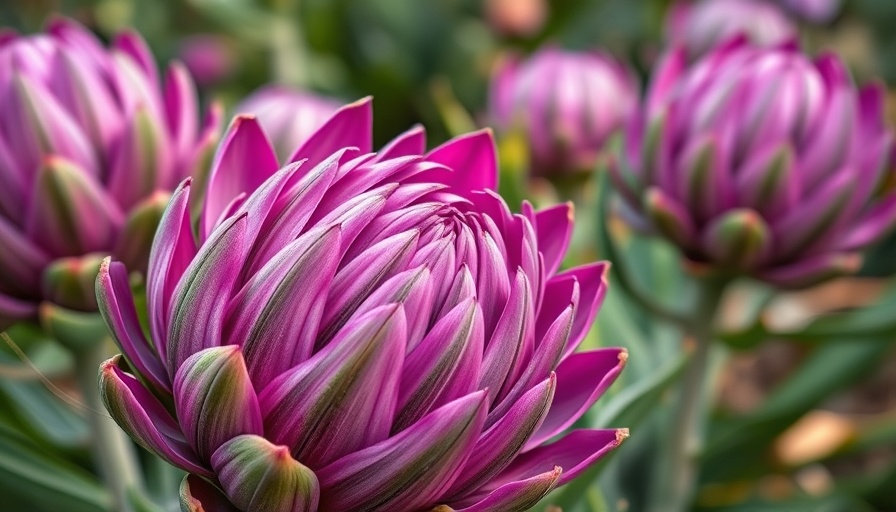
Unlocking the Secret to Perennial Vegetables for Year-Round Harvests
Every gardener dreams of a thriving vegetable patch that doesn't require the hassle of replanting every year. Perennial vegetables are a game-changer in the world of gardening, offering a sustainable approach that allows you to enjoy fresh produce season after season. As we explore the bounty of perennial vegetables, it's worth noting that these hardy plants are not just about convenience; they bring resilience and diversity to our gardens.
The Benefits of Planting Perennial Vegetables
Imagine a garden bursting with life, where every plant has a purpose, from feeding your family to supporting local ecosystems. Perennial vegetables offer numerous benefits, particularly for those looking to create a low-maintenance garden. By planting perennials, gardeners can reduce the time spent on seasonal preparations and enjoy a continuous harvest. Additionally, perennial vegetables often require less water and nutrients compared to their annual counterparts, making them an eco-friendly choice in these times of climate awareness.
Top Perennial Vegetables to Consider
Integrating perennial vegetables into your garden not only enriches your diet but also enhances biodiversity within your backyard ecosystem. Let's delve into a carefully curated list of perennial vegetables that are not only delicious but also resilient.
- Asparagus: Known for its tender spears, asparagus is a classic perennial vegetable that can produce for over 20 years. It thrives in well-drained, fertile soil.
- Rhubarb: Often confused as a fruit, rhubarb’s tart stalks are perfect for pies and jams. This plant is hardy and will come back every year, providing you with vibrant greens.
- Horseradish: This root vegetable packs a punch and is resilient, quickly becoming established in your garden. Just be cautious as it can also spread vigorously!
Designing Your Eco-Friendly Urban Food Forest
Transitioning to a food forest style garden creates a lush, multi-layered landscape. You can place your perennial vegetables alongside fruit trees, herbs, and flowers, which complement each other and attract beneficial insects like pollinators. For instance, including companion plants such as marigolds can help deter pests while encouraging a rich environment for your vegetables to flourish. By creating a balanced ecosystem, you not only enhance the aesthetics of your yard but also cultivate a productive environment.
Frequently Asked Questions About Perennial Vegetables
Getting started with perennial vegetables may raise questions for novice gardeners. Here are common queries addressed:
- How long do perennial vegetables take to start producing? Most perennial vegetables will take at least one growing season before you can harvest them. Asparagus, for example, typically requires three years.
- What are the best zones for planting? Many perennial vegetables thrive in USDA zones 3-9, but it’s important to check specific varieties to ensure they’ll thrive in your climate.
Tips for Maximum Yield and Success
To ensure that your perennial garden thrives, consider the following tips:
- Soil Preparation: Healthy soil leads to productive plants. Add organic compost to enrich your perennials and help them establish strong roots.
- Watering and Mulching: Newly planted perennials will need regular watering until established. Once they mature, mulching can help retain moisture and prevent weeds.
- Season Extension Techniques: Techniques like using row covers or cold frames can help protect your perennials from harsh winter weather, prolonging your harvest season.
A Bright Future for Your Garden
Incorporating perennial vegetables into your garden design opens a world of possibilities for flourishing landscapes that feed not just your family but also the surrounding biodiversity. As you embark on this gardening journey, remember that each plant tells a story—a story of resilience, sustenance, and the joys of nurturing life. Let your garden be a testament to these values, inspiring others in your community to embrace the beauty of perennial gardening.
So grab your trowel, sow some seeds, and transform your garden into a vibrant oasis!
 Add Row
Add Row  Add
Add 




Write A Comment